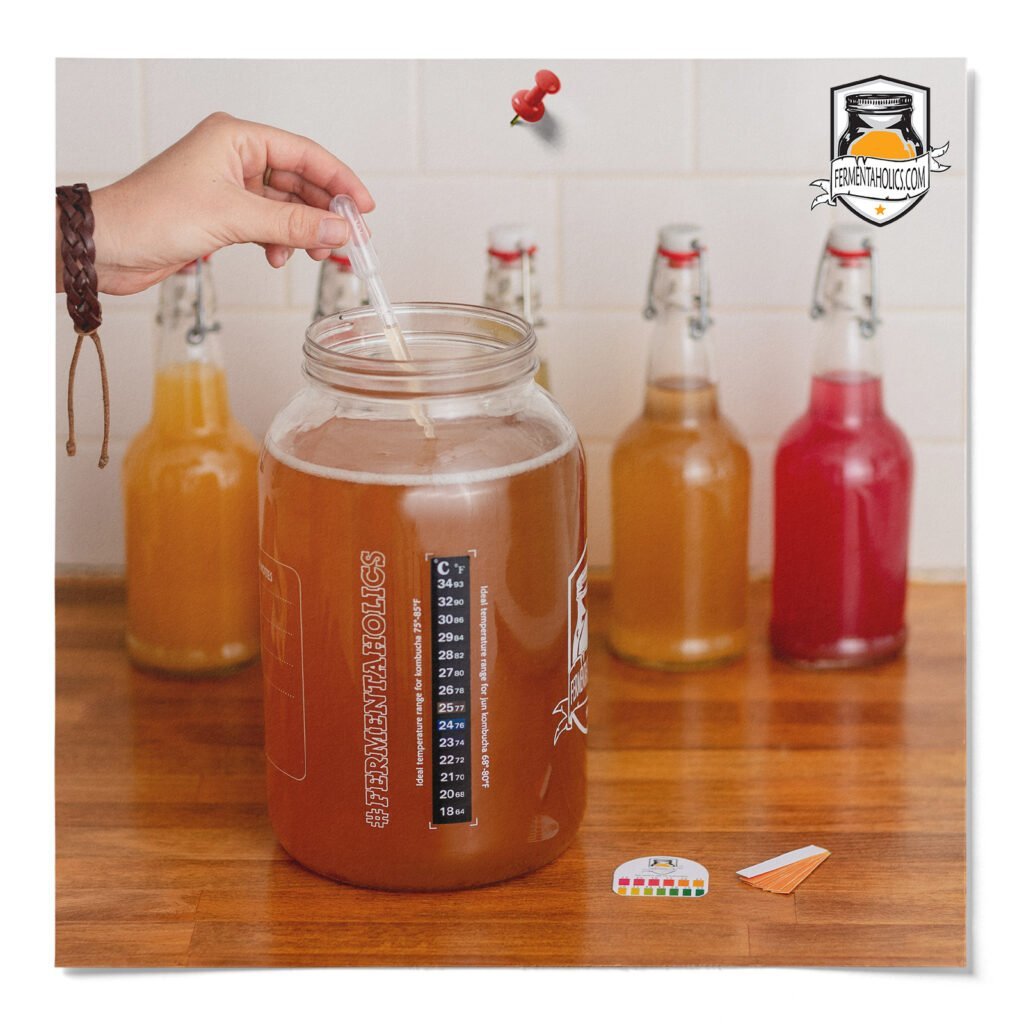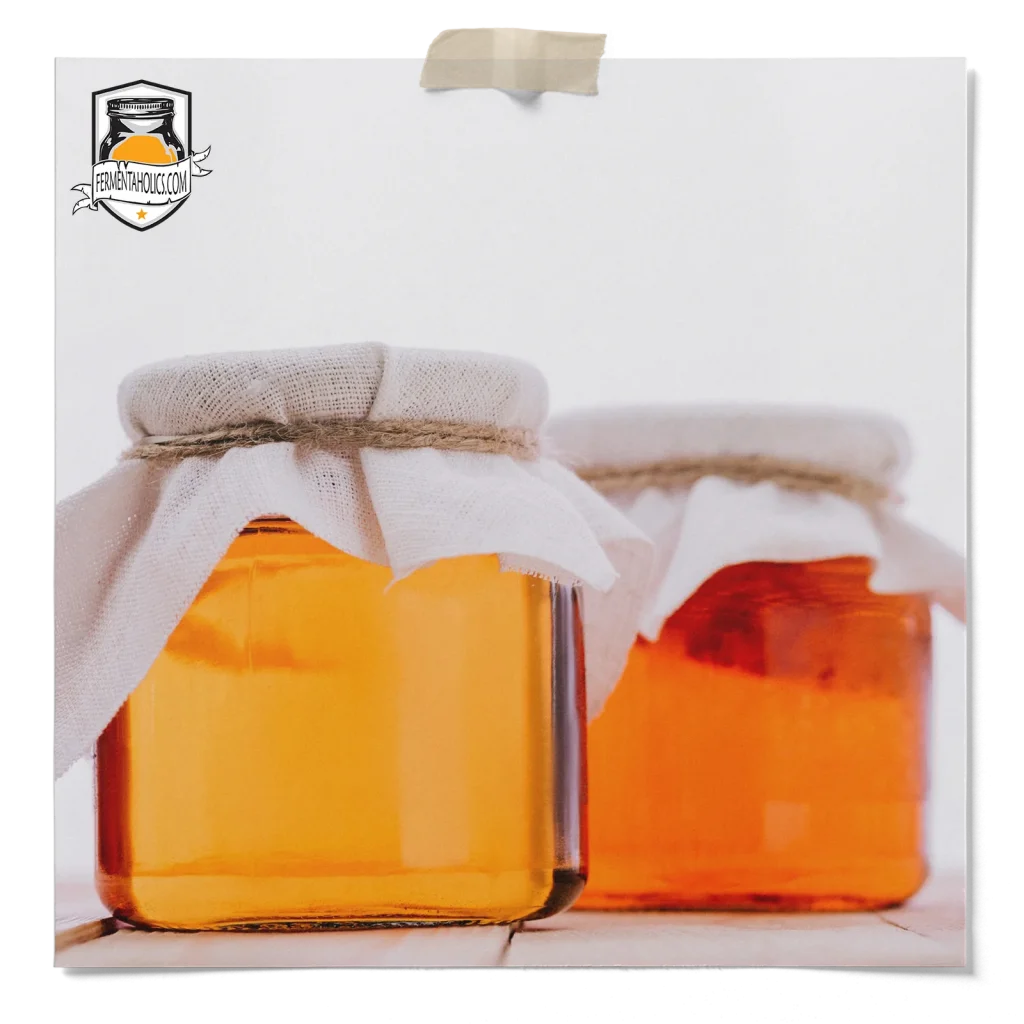
Kombucha is a unique beverage, so it’s easy to understand why we get so many questions about it. Certain drinks are consumed all day, while some are associated with different times of the day as they are consumed around specific daily tasks, events, and meals. For example, we have coffee in the morning, smoothies in the afternoon, protein shakes after working out, mimosa with brunch or wine with dinner…… or anytime over here. So, where does kombucha fall on this scale? For most, it’s an all-day event!

For those of you new to kombucha, kombucha is fermented sweet tea with health benefits. It’s effervescent, slightly tart, slightly sweet, and fermented! To dig a little bit deeper, be sure to check out our post on what is kombucha?

For the most part, you can drink kombucha anytime, as it’s considered a healthy soda alternative. Any limiting factor merely comes down to particular individuals with sensitivities. Kombucha contains trace amounts of alcohol, caffeine, probiotics and can be acidic. So if these aren’t important to you, then go wild – drink kombucha anytime you’d like or as Shakira would say, “Whenever Wherever.”
For those of you with sensitivities, let’s go over each in detail to help you decide when it will be best for you to drink kombucha!
Since Kombucha is filled with probiotics, drinking it on an empty stomach may cause you to have an upset stomach. Although, if you eat breakfast and have a cup of kombucha on the side it may help you kickstart your day. It is also a great alternative to a cup of coffee and still provides you with the caffeine you need to wake yourself up. If you are a fellow coffee lover, make sure you check out our coffee kombucha recipe.
Drinking Kombucha with or after your meals can help aid digestion because of the acidity and carbonation within the drink itself. If you find yourself feeling tired and bloated after lunch, try drinking kombucha as a wake-me-up and something to cure your desire for something sweet. If you are an experimental brewer- you can also try your part in making kombucha into food!
As we stated earlier, kombucha contains caffeine. Meaning if you find yourself lying wide awake in bed- twisting and turning trying to fall asleep; you should try to avoid drinking kombucha before going to sleep. However, if you are not caffeine sensitive, kombucha is known to be a great alternative for wine because of its acidic flavor and display of fancy flavors.

If you have a sensitivity to alcohol or if you are trying to avoid it altogether, it’s essential to know that kombucha does contain small amounts of alcohol. The typical alcohol content of kombucha, while usually on the lower end, ranges from 0.25%-1.00% A.B.V., sometimes a bit higher. This range is relatively standard for homemade kombucha.
Side note, you can’t get drunk from this low range, we covered this question before, Can you get drunk from kombucha? Store-bought kombucha in the U.S. is considered non-alcoholic and is required by law to be 0.5% A.B.V. or less. Here in the United States – all beverages are required by federal law to be at or below 0.5% A.B.V. to be considered non-alcoholic.
Well? It depends. Each kombucha brew is slightly different. For store-bought kombucha, we’ve seen it range from as little as 7 milligrams to as much as 80+ milligrams of caffeine. A typical cup of coffee contains 100 milligrams of caffeine while decaf coffee contains about 7 milligrams of caffeine. Yes, decaf coffee has caffeine. For additional comparison purposes, here is a useful caffeine content chart for many popular drinks. If caffeine is a concern of yours, you may want to drink kombucha in the morning as opposed to night. For store-bought kombucha, you can determine caffeine content from the label or the brand’s website. Homebrew kombucha caffeine content can be estimated by the tea leaves used. For example, an 8 fluid ounce serving of black tea can have 25 to 48 milligrams of caffeine. The caffeine content varies with tea leaves. The 3 main factors are teas origin, processing technique, and brew time.
Also, keep in mind that during the fermentation process, the kombucha culture or SCOBY reduces the caffeine content as it ferments. So while your brew may start with 35 milligrams of caffeine, the final caffeine content will be lower. You can find more on this on our post on kombucha caffeine levels.
Finished kombucha will have a pH between 2.5 and 3.5. By comparison, this pH level is somewhere between orange juice and cranberry juice.
If you have a sensitivity to acidity in general, your best option is moderation. Drink small amounts or with a meal. Listen to your body and drink more or less accordingly. Curious on pH levels of other drinks, see this pH Chart of 100’s of popular beverages.
A huge benefit of drinking kombucha is the health benefits provided by probiotics. Harvard University has a great post on the benefits of probiotics bacteria, which include but not limited to:
It’s controversial. There is a lot of mixed information available on this topic, even amongst doctors. Dr. Zembroski says, “Rather than sunrise or sunset, it’s more important to take probiotics with food, not on an empty stomach.” The complete article found here why taking probiotics on an empty stomach is a bad idea.
On the flipside, David Perlmutter, M.D. and #1 New York Times Best-Selling Author, says it’s best to consume probiotics on an empty stomach when acid levels are lower. The less acidic, the more microbes (bacteria & yeast) can make it to the large intestine.
While these doctors have conflicting opinions on strategy, I think they both would agree that regular and consistent consumption will be the best approach to gaining the most probiotic benefit.
As you can see, there isn’t a wrong answer. If you don’t have any sensitivities, drink up. If you do have sensitivities, then it varies by the individual and what they are trying to limit or avoid. If you’re trying to limit caffeine, kombucha’s made with black and green tea, so it does contain small amounts of caffeine, you may want to avoid drinking kombucha at night.
If your stomach is sensitive to acidity, much like soda, drinking kombucha on an empty stomach may cause upset. Either drink with food, or drink small amounts and adjust accordingly. Last, while the alcohol content of kombucha is low and generally considered non-alcoholic, if you are trying to avoid all alcohol, including trace amounts found in kombucha, then you may choose to refrain from drinking kombucha entirely.
In conclusion, there’s no one-size-fits-all answer to when is the best time to drink kombucha. It largely depends on individual factors and sensitivities. But for those without any particular sensitivities, kombucha can be enjoyed ‘Whenever, Wherever,’ just as Shakira suggests.
